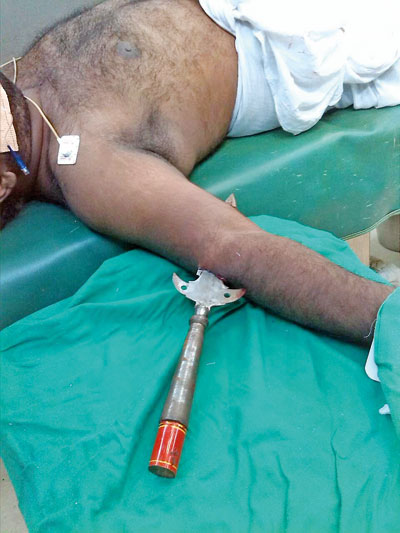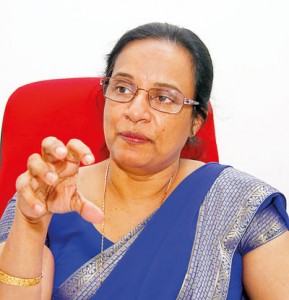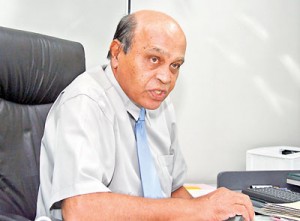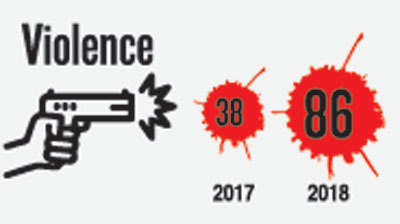News
From Avurudu to a kill: the deadly tale of New Year high jinks
View(s):Violence during the Avurudu season has doubled since last year with much of it caused by drunken, murderous frenzy.

A man receiving treatment at the National Hospital
Most patients admitted to hospital over the season had deep cuts, crushed skulls, fractured bones and other injuries caused during brawls, the Deputy Director of National Hospital (Accident Services), Dr Samiddhi Samarakoon said.
“The recent trend indicates that most injuries inflicted during violent incidents are made not to maim but to finish off an opponent,” she said.
Dr. Samarakoon related how patients who receive head injuries during fights can lose capability of speech and movement or lie in a coma for years.
She said hospital records of patients admitted during the New Year season (April 13-15) showed 86 cases of injuries from violence had been treated in the accident ward: in the corresponding period last year, there had been only 38 cases.
Most of the injuries had occurred while people had been drinking to celebrate the New Year.
“Around 76 per cent of the patients who came for treatment for injuries suffered during violent incidents were found to be under the influence of liquor,” Dr. Samarakoon said.
Altogether, 638 patients showed up at the accident ward from April 13-16, with a third of them being admitted to the hospital for further treatment.
“We had an improvement in reducing firecracker-based accidents because we only received one patient from an outstation area who had a minor hand injury due to a cracker explosion,” Dr. Samarakoon said.
She said the relief felt by hospital authorities on this account was offset by dismay at the high number of injuries from violence, mainly from outstation areas and the outskirts of Colombo.
In Gampola on New Year’s Day, a man attacked his girlfriend and her mother with a manna knife after crashing his lorry into their van. The incident had taken place during the auspicious time to start work.
The man slashed the girl’s arms with the sharp weapon and assaulted her mother. The girl received critical injuries to her head and deep cuts in her limbs.
The man was arrested and produced before Gampola Magistrate Chandani Meegoda, and ordered to be placed in remand until March 2.
In another incident in Gampola, a 16-year-old boy was cut on the head with a manna knife at his birthday party and is still in intensive care.
Another patient was a 47-year-old man whose friend bashed his head with a wooden beam during a heated argument while the two had been drinking together at a party.

Deputy Director of National Hospital (Accident Services), Dr Samiddhi Samarakoon
In Habaraduwa, a group of people had slashed two cousins with swords. The victims had been in a drunken argument with some men during a New Year festival programme. The men later invaded their home and attacked them. Habaraduwa police are searching for the culprits.
Police media spokesman Superintendent Ruwan Gunasekara said liquor was always one of the main causes of violence and traffic accidents and that this trend escalated during the festive season as people gathered together for merriment and consumed liquor.
Although there were bans on selling liquor on special holidays such as Avurudu, bars, taverns and liquor shops made special arrangements to provide people with their desired supplies in advance, he noted.
He added that more police mobile patrols were deployed to control drink-driving during the New Year but the patrols were unable to act when violence occurred at house parties unless complaints were made or someone was admitted to hospital.

Former senior deputy inspector of police H.M.G.B Kotakadeniya
Former senior deputy inspector of police H.M.G.B Kotakadeniya blamed the ready availability of liquor for the increase in violence and said there was a symbiotic but unhealthy relationship between politicians, bar owners, thugs and police.
He said that although the government displayed an anti-liquor policy many bar licences were held by politicians.
“Most policemen cannot apprehend people who engage in violent incidents because politicians and senior officials appointed by politicians are involved. How can we put an end to violence when politicians provide protection for culprits?” Mr. Kotakadeniya asked.


